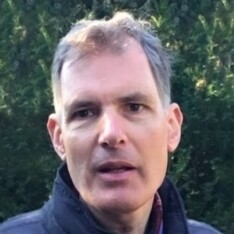The Abuse of Science in the Corona Crisis

Science plays a pivotal role in the current crisis, not only in investigating the nature of the virus, but also in guiding the political reactions to its spread.
Leopoldina, the German National Academy of Sciences, writes in a statement dated December 8, 2020:
Despite the prospect of a start of the vaccination campaign soon, it is absolutely necessary from a scientific point of view to quickly and drastically reduce the still clearly too high number of new infections through a hard lockdown.
With this document in her hands, the German chancellor, Angela Merkel, justified a hard lockdown in parliament on December 9, 2020, invoking laws of nature such as gravitation and the velocity of light as well as the force of enlightenment.
At least three things are remarkable about this document:
(i) it claims to be THE scientific viewpoint, with no discussion, no plurality of voices to argue with reason and evidence;
(ii) it makes coercive measures by the political authorities that imply a massive encroachment on basic human rights absolutely necessary, with no gap to be overcome between science that discovers facts and normative proclamations;
(iii) given a controversy about the appropriateness of such coercive measures in the general public, the mission of the Academy, consisting in promoting “a scientifically enlightened society and the responsible application of scientific insight for the benefit of humankind” is to employ its authority and reputation to help the government out: science becomes the ultima ratio to legitimize central state planning of people’s lives, including their social contacts and family life, and the suspension of the constitutional rights that this implies.
Science serves indeed the purpose of enlightenment. But it can also be the case that enlightenment is called for against knowledge claims in science and their political use.
Enlightenment has two poles. On the one hand, there is the liberation of humankind as expressed, for instance, in Immanuel Kant’s definition of enlightenment as “man’s emergence from his self-imposed immaturity” in his essay “An answer to the question: What is enlightenment?” (1784).
On the other hand, there is scientism, that is; the idea that scientific knowledge is unlimited, encompassing also humankind and all aspects of our existence and that society can be centrally planned according to this knowledge.
The tension between these two poles is obvious: the concern of the pole advocated by Kant is that persons use their freedom to make their own, considered decisions. This presupposes that there is no knowledge – neither from natural science nor from philosophy, religion or other sources – that can prescribe or even enforce upon us the right decision in such a way that there is no alternative.
Scientism, by contrast, assumes that scientific knowledge can prescribe the appropriate decisions on the individual as well as on the societal level. The latter is what we currently experience in the coronavirus crisis: an alliance of science and politics claims to have knowledge about how to plan society in this situation, knowledge that justifies overriding the freedom of individuals and the rule of law – in this case, however, not to achieve an alleged common good, but to avert an alleged upcoming common evil.
We know many cases from history, in particular of the last century in Europe and especially Germany, in which coercive state measures were legitimized as absolutely necessary from a scientific point of view and had devastating consequences for the people affected. Is it different this time? Is it possible and permissible to stop the spread of a virus through central state planning with a massive intervention in people’s lives – and especially the lives of those people who do not have much time left to live – without causing great harm?
We have two criteria to answer this question:
- the utilitarian criterion: Is the benefit to society as a whole (or the harm averted) of the coercive measures greater than the harm that these measures cause?
- the deontological criterion: Is there a limit to state interventions in the given situation that is set by the freedom and dignity of individuals as such – regardless of how useful these interventions might otherwise be?
To mention just one out of the by now numerous research results, according to the meta-study by John Ioannidis of Stanford University published by the WHO, the infection mortality rate of Covid-19 ranges from 0.00% to 1.63% with a median value of 0.27%, depending on the region. The vast majority of the deceased persons are over 70 years old and have significant previous illnesses. Covid-19 is mostly dangerous for people of advanced age and in particular with preexisting conditions. For all other groups of people, the danger lies within the range of generally accepted, everyday risks (“Infection fatality rate of COVID-19 inferred from seroprevalence data”, Bulletin of the WHO, Article ID: BLT.20.265892).
Nonetheless, the idea is that lockdowns or similar coercive measures can save years of life in the present acute situation: fewer deaths should then occur in connection with Covid-19 and the hospitals should be relieved. However that may be, in any case, years of life are also lost as a result of the economic, health and social damage caused by such coercive measures.
The result is sobering, as is by now proven by a large number of studies. The damage in terms of years of life lost exceeds the possible benefit in years of life gained many times over, in every scenario, taking into account the uncertainty and accordingly the entire range of possible initial values employed to calculate years of life gained and lost. Under utilitarian criteria, the verdict on the coercive measures thus is devastating.
We do not face the alternative of either doing nothing or suspending basic human rights through lockdowns and the like. When a wave of infection rolls in that threatens a certain group of people, they and everyone else spontaneously adjust their behaviour; in such a situation, it is the task of the state to create a legal framework for solidarity with the vulnerable people, as urged, for instance, in the Great Barrington Declaration. But also from a deontological point of view, out of respect for the freedom and dignity of these very people, one must grant everyone the freedom to assess for themselves what risks they are prepared to take for a life that they consider worth living.
No one has the right to use coercion here, to set their personal protection absolute and to disregard the life perspectives of others. The spread of the coronavirus neither is a defence case nor any other case of a danger to the population as a whole. Consequently, there is no justification for suspending the normal rule of law. That is why the restrictions on fundamental rights that continue to be imposed set a worrying precedent. They lower the bar for declaring a state of emergency with the suspension of basic human rights in an utterly irresponsible manner.
Against this background of the knowledge that we have by now, it is no surprise to learn that the recent hard lockdown in Germany did nothing to quickly and drastically reduce the high number of new infections. But, of course, when central political planning of society down to personal life fails – in this case fails to stop the spread of a virus – it can only be the fault of the behavior of some people (those who strengthen their immune system by going out into the fresh air in the case at hand), but never the failure of the idea of central planning, given the scientific proof of the absolute necessity of the coercive measures in question.
Accordingly, the Merkel government prolongs and further hardens the already hard lockdown. It is as in the Milgram experiment: alleging that science demands to impose ever more severe shocks on people is the best means available to make them comply and to prevent them from using their own reason to realize what is going on. Science has real power – as a means of enlightenment, but also as a means of spreading darkness and hindering people from thinking and taking decisions for themselves.
It thus proves fatal once again to dissolve the tension between freedom and scientism inherent in enlightenment in favor of scientism and its political use. What a mistake to have thought in 1990 that this was behind us. Of course, the threats from Chinese totalitarianism and Islamist religious fanatism already then were and still are with us. But these are external threats. We are aware of them and know how to address them.
Arguably much more worrisome is the threat from within our own elite in science, if the spread of a virus can be used as a pretext to reanimate scientism and to set up an unholy alliance of science and politics to promote central state planning of society down to the life of individuals and their social contacts.
The role of science must not be the one of state religion in pre-Enlightenment times: in the present case as in all the other previous cases, there is no knowledge that can be employed to justify a central state planning of society that overrides the freedom of individuals and their constitutional rights. Enlightenment is also today the exit from the self-imposed immaturity into which our society currently runs in that respect.










